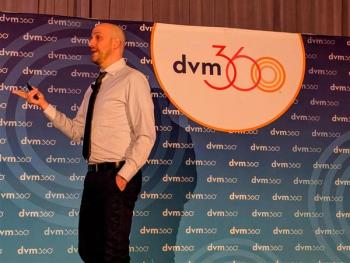
When to choose CT vs. MRI (Proceedings)
I'm not telling you something you don't already know when I write that radiographs are not the end all for diagnostic imaging. X-rays were discovered in 1895 and as with any old technology it is typically the least informative. Newer imaging technologies will always provide more information.
I'm not telling you something you don't already know when I write that radiographs are not the end all for diagnostic imaging. X-rays were discovered in 1895 and as with any old technology it is typically the least informative. Newer imaging technologies will always provide more information. However radiographs will remain the first line of imaging for quite some time due to their ease of use, low cost and global assessment.
One of the old thought processes associated with CT and MRI is the need to go to surgery immediately following imaging. This mindset needs to change for several reasons. First, studies performed on morbidity and mortality associated with anesthesia in both humans and animals did not find a link between the number of anesthetic procedures and complications. Complications are associated with sickness and extremely sick animals should not be undergoing an MRI anyway. Extremely sick animals should have rapid assessment imaging and then surgery. For stable patients receiving a CT or MRI I do not recommend rushing into surgery unless there is a critical finding. CT and MRI studies consist of hundreds of images and to thoroughly review these images for all the information takes more time than the journey between imaging and the OR. The old adage "Measure twice, cut once" will serve you well in this situation.
Computed Tomography or CT uses x-rays to obtain the image and the computer to display the image. CT scans provide excellent spatial resolution and fair contrast resolution. Soft tissues on CT are not well separated.
Magnettic Resonance Imaging or MRI uses magnetic fields, specific frequencies and the computer to display the image. MRI provides fair spatial resolution (at lower field strengths) and excellent soft tissue contrast resolution. MRI is particularly useful in identifying regions of edema or inflammation which translates into pathology.
While there are many cases that could be imaged with either CT or MRI there are specific instances where one imaging modality is preferred over the other. The following is a partial list of those cases.
Nasal disease
CT is preferred over MRI due to fine turbinate detail however MRI would be preferred over CT if brain signs are present.
Ear disease
CT is preferred over MRI due to fine turbinate detail however MRI would be preferred over CT if brain signs are present.
Orbital disease
MRI is preferred over CT. If CT is the only option then both axial and coronal images should be obtained. Coronal images are done by placing the patient in dorsal recumbency and pointing the nose up.
Brain disease
MRI is preferred over CT. If CT is the only option then both pre and post-contrast axial images should be obtained. Meningiomas and pituitary masses will show up on post-contrast images.
Cervical disease
MRI is preferred over CT. If CT is the only option then a CT myelogram should be performed.
Thoracic or lumbar disease
MRI is preferred over CT. If mineralized discs are present then plain CT is fine due to the epidural fat around the spinal cord. For other CT studies a CT myelogram may be necessary.
Shoulder or brachial plexus
MRI is preferred over CT. If CT is the only option then IV contrast should be used for brachial plexus tumors.
Elbow disease
CT is preferred over MRI due to spatial resolution.
Pulmonary disease/ mets
CT. MRI can be used for cardiac evaluation.
Abdominal disease
CT or MRI with contrast. For IVP then CT.
L-S or Stifle disease
MRI is preferred over CT for both.
Newsletter
From exam room tips to practice management insights, get trusted veterinary news delivered straight to your inbox—subscribe to dvm360.




